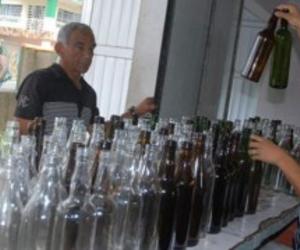Cuba Adopts Cooperative Formula to Boost Economic Development
- Submitted by: lena campos
- Business and Economy
- 07 / 04 / 2013

As part of the strategy to implement the update of the Cuban economic model, 124 new cooperatives began operations on Monday in the sectors of construction, transportation, recycling and produce marketing.
In statements to Granma daily newspaper, the head of the Entrepreneurial Group with the Guidelines Implementation Commission, Grisel Trista Arbesu, said that the initiative aims at trying cooperative management in activities that former stage formulas were not efficient.
A group of 99 out of the 124 new cooperatives operate farmer markets in the western provinces of Havana, Artemisa and Mayabeque; two work in the recycling sector and 12 are linked to construction activities.
There are six cooperatives offering vehicle maintenance services and others supporting passenger transportation, operating as taxi cabs, and school buses.
Even when transportation prices are determined by offer and demand, some activities and products maintain topped prices, such as staples like rice, potatoes and green peas, as well as passenger transportation tickets.
The cooperatives will play an important role in the country’s economy, though the main task is to be carried out by state companies, said Ruben Toledo, member of the Commission for the Implementation and Development of the Guidelines adopted by the Communist Party. He noted that the cooperatives are not the result of privatization, but of a process in which they will manage state property that belongs to the people. (RHC)
Starting Monday 124 “experimental” cooperatives began operating in Cuba, in sectors such as construction, transportation, waste disposal and agricultural markets, reported the official media.
This type of management has been designed by the government for activities that “are not transcendental” for the country’s economy, said Grisel Tristá, who heads the Business Improvement Group of the Standing Commission for Implementation and Development.
In this first group, 112 coops come from the state sector and 12 from non-state businesses. These include:
• agricultural markets: 99
• recycling and recovery of raw materials 2
• construction activities 12
• auxiliary transport services 6
• transportation of passengers: 5
Cooperatives “are called on to play an important role in the country’s economy, although the main role will continue to be the socialist state enterprise,” said Ruben Toledo, from the same commission.
Source: Havana Times.org
Comments